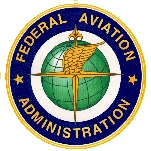Officials
Back to Officials


Offical

Name: Babbitt, J. Randolph
Current Position: Previous Administrator
J. Randolph “Randy” Babbitt, an aviation consultant and former pilot-union boss, was sworn in as the administrator of the Federal Aviation Administration (FAA) on June 1, 2009, as it began to overhaul air-traffic control equipment through the NextGen project, a billion-dollar effort to use satellites rather than ground-based radar to guide airplanes.
Born and raised in Coral Gables, Florida, Babbitt, 62, is the son of W.T. “Slim” Babbitt, a retired Eastern Airlines captain, and Margaret Babbitt. He attended the University of Georgia and the University of Miami before beginning his own career as a pilot for Eastern in 1966.
During his 25 years as a commercial airline pilot flying DC-9s, he became actively involved in the Air Line Pilots Association (ALPA), the world’s largest union of airline pilots. In the early 1970s, he served on several local ALPA committees for Eastern pilots, and was later elected and served two years as vice chairman of the Eastern pilots based in Miami. Babbitt also chaired ALPA’s National Collective Bargaining Committee and its Presidential Committee on Labor Standards.
In 1985, he was chosen as the union’s executive administrator, which called for assisting the president of ALPA in a wide range of areas, including administering staff departments, acting as liaison between the national office and membership councils and pilot committees, and troubleshooting collective bargaining situations. Babbitt was in this position when Eastern Airlines went on strike in 1989—which resulted in 3,000 employees losing their jobs to replacement workers hired by the airline. Some of the fired pilots filed a class action lawsuit against the union on grounds that it failed to pursue other jobs for them.
In 1990, Babbitt was elected president and CEO of the union, serving two terms. The following year he publicly slammed the federal government’s deregulation of the airline industry, claiming the move had sent it into a “nosedive” and cost too many jobs. He also publicly criticized Samuel Skinner, secretary of transportation under President George H. W. Bush, and the FAA for failing to upgrade the nation’s air traffic control system.
In 1992, he convinced the airline pilots union to endorse Bill Clinton for president—after decades of the union standing on the sidelines during presidential races.
Six years later, Babbitt backed the decision by pilots of Northwest Airlines to go on strike, which lasted 13 days, the longest strike of its kind since 1989. The strike was the last that Babbitt oversaw as head of the union because he stepped down at the end of 1998.
Babbitt left the union in 2001 to found Eclat Consulting, Inc. to provide “economic support for regulatory, legislative, and business issues in aviation.” He sold Eclat to the Oliver Wyman consulting firm (part of the Marsh and McLennan Companies) in September 2007, where Babbitt served as partner. His clients have included Airbus SAS, Alaska Air Group Inc., AirTran Holdings Inc., Hawaiian Holdings Inc. and Pinnacle Airlines Corp. Since joining Oliver Wyman, Babbitt’s client work has focused mainly on advising airlines and labor unions throughout complex restructuring initiatives and negotiations.
Babbitt also has served as a director of Access National Bank since it was organized in 1999, and as a director of Access National Corporation (the bank’s holding company) since it was formed in 2002.
Babbitt served on the 1993 National Commission to Ensure a Strong Competitive Airline Industry, which supported deregulation of the airline industry, and the FAA Management Advisory Council. In 2008 he was named by Transportation Secretary Mary Peters to an independent review team of aviation and safety experts tasked with evaluating and crafting recommendations to improve the FAA’s implementation of the aviation safety system and its culture of safety. That effort yielded the report, “Managing Risks in Civil Aviation: A Review of the FAA’s Approach to Safety.”
Industry observers say Babbitt’s first priority as head of FAA is likely to be settling a long-running battle between the agency and its air-traffic controllers. The two sides have been at odds over pay scales and work rules since 2006, when the FAA imposed pay cuts on new hires, dress codes and other workplace restrictions following a period of acrimonious negotiations.
Another goal will be to break the political logjam blocking deployment of the next-generation traffic-control system, touted as the best cure for the chronic delays plaguing air travel. The new system isn’t currently scheduled to be fully operational before 2020, and such a long transition concerns lawmakers and industry. Airlines have balked at making expensive technology upgrades to their cockpits, saying they need more proof of future benefits.
Another goal will be to break the political logjam blocking deployment of the next-generation traffic-control system, touted as the best cure for the chronic delays plaguing air travel. The new system isn’t currently scheduled to be fully operational before 2020, and such a long transition concerns lawmakers and industry. Airlines have balked at making expensive technology upgrades to their cockpits, saying they need more proof of future benefits.
Outside of his professional work, Babbitt has volunteered for the Boy Scouts of America National Council, St. Mark’s Church in Oakton, Virginia, and the Lake Anna Civic Association.
- Latest News
- D.C. Public Schools will Teach all Second-Graders to Ride a Bike
- New Rule in Germany Limits Sales of Sex-Themed E-Books to 10pm to 6am
- What Happened to the 6-Year-Old Tibetan Boy the Chinese Government Kidnapped 20 Years Ago?
- U.S. Ambassador to Turkey Photoshops his Hair Color to Mock Turkish Mayor
- Mystery Artist Calls Attention to Unfixed Potholes by Drawing Penises around Them





